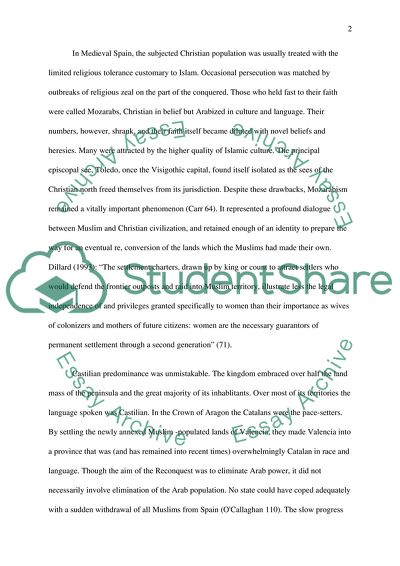Cite this document
(“Muslim Women in Medieval Spain Essay Example | Topics and Well Written Essays - 2500 words - 1”, n.d.)
Muslim Women in Medieval Spain Essay Example | Topics and Well Written Essays - 2500 words - 1. Retrieved from https://studentshare.org/miscellaneous/1551527-muslim-women-in-medieval-spain
Muslim Women in Medieval Spain Essay Example | Topics and Well Written Essays - 2500 words - 1. Retrieved from https://studentshare.org/miscellaneous/1551527-muslim-women-in-medieval-spain
(Muslim Women in Medieval Spain Essay Example | Topics and Well Written Essays - 2500 Words - 1)
Muslim Women in Medieval Spain Essay Example | Topics and Well Written Essays - 2500 Words - 1. https://studentshare.org/miscellaneous/1551527-muslim-women-in-medieval-spain.
Muslim Women in Medieval Spain Essay Example | Topics and Well Written Essays - 2500 Words - 1. https://studentshare.org/miscellaneous/1551527-muslim-women-in-medieval-spain.
“Muslim Women in Medieval Spain Essay Example | Topics and Well Written Essays - 2500 Words - 1”, n.d. https://studentshare.org/miscellaneous/1551527-muslim-women-in-medieval-spain.


